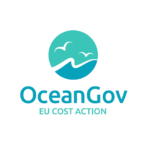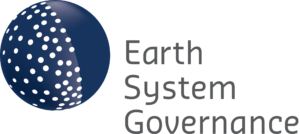Shipping
International shipping is one of the oldest transnational industries and is crucial to sustain our global economy as it transports 90% of all goods and materials. International shipping has tripled in the amount of goods it transports since the 1980s and this growth is expected to continue in the future as well. This has also increased the pressure on the marine environment generated by oil, sewage, chemical and waste discharges, the use of fossil fuels and associated air and greenhouse gas emissions, and the discharge of (alien) species and organisms through ballast water. The UN based International Maritime Organization (IMO) has drafted more than 50 Conventions to Ensure save and sustainable shipping, including multiple that regulate these emissions and discharges. However, implementation and enforcement of IMO’s measures remains challenging. The footloose sector is difficult to monitor and enforce. In addition, the industry itself is only slowly moving forward when it comes to adopting a proactive attitude towards environmental issues and regulation. While the IMO continues to play a key role in the environmental governance of shipping, private governance initiatives are increasingly emerging through which ports and cargo-owners try to put pressure on the industry to become more ambitious and proactive.
This cluster aims to bring together scholars and research projects that investigate current challenges and trends in the sustainability of shipping, including the politics and decision-making at IMO, the emergence of private governance and corporate social responsibility in the shipping sector, the use and role of technological innovation in sustainable transitions within this sector, and value chain dynamics and actors that influence shipping sustainability. Potential linkages exist with the Recreation & Tourism cluster through a shared interest in cruise shipping and tourism; with Trade & Globalization when considering the role of shipping in facilitating international trade and the global economy; with Blue Economy as one of the growing maritime economic sectors; and with Pollution and Climate Change because shipping contributes to pollution and climate change through various discharges and emissions.
If you’d like to join the cluster, please click here to become a member. This will allow you to post information on the page and give you the opportunity to receive information and updates via the Oceans Taskforce listserve.
While we do not have funding ourselves, we do hope to foster joint projects via Working Groups, which would bring together cluster members to write grant proposals, put together collected volumes/special issues, or develop webinars, workshops, syllabi, or similar products. All projects should focus on the cluster topic and fit within the ESG Science Plan (http://www.earthsystemgovernance.org/research-agenda/). Working group members should come from more than one institution and should have sufficient expertise to accomplish project goals. Forming a working group can help you to expand your professional network. It will also provide mentoring from the cluster leaders and access to logistical support like web-conferencing from ESG headquarters. To submit a Working Group proposal, please fill out this form and send it to the cluster leader(s) listed below. If you’d like to propose a Working Group that fits in more than one cluster, please send it to the leaders of each cluster in a single e-mail. Scroll down for descriptions of active Working Groups.
Cluster Leaders:
Judith van Leeuwen
Wageningen University, Netherlands
judith.vanleeuwen@wur.nl
Active Working Groups:
- Aquaculture
- Call for paper abstracts on Earth System Governance for Blue Growth (2018 Utrecht ESG conference)
- European Parliament Resolution on Ocean Governance (16/01/18)
- Capacity building workshop for EU early career marine researchers
- Earth System Governance Task Force on Ocean Governance
- Biodiversity (incl. beyond national jurisdiction)
- Ocean Climate Geoengineering Roundtable
- 71 countries are negotiating a new biodiversity treaty. Here’s what you need to know.
- Ocean science and policy
- Call for abstracts for an ISA panel on Ocean Governance issues
- Article on the BBNJ treaty and Marine Litter
- Budget earmarks $500m to mitigate Great Barrier Reef climate change
- Great Barrier Reef saw huge losses from 2016 heatwave
- Bright lights shining on the horizon for the Brazilian Ocean Economy?
- Professorship Opening in Marine Governance at Oldenburg University, Germany
- Small-Scale Fisheries under Climate Change in the Pacific Islands Region
- Call for paper abstracts on Earth System Governance for Blue Growth (2018 Utrecht ESG conference)
- European Parliament Resolution on Ocean Governance (16/01/18)
- Capacity building workshop for EU early career marine researchers
- Vacancy: Research Associate – Partnership for Regional Ocean Governance (PROG)
- Call for Papers for Multi-Stakeholder Collaboration in Regional Seas Environmental Cooperation Panel at ECPR 2018
- Ocean governance: strengthening the legal framework for conservation of marine biological diversity beyond areas of national jurisdiction
- Earth System Governance Task Force on Ocean Governance
- Blue Economy
- Call for Panels and Papers: “Ocean And Polar Politics” (EISA)
- 2nd Part of the 24th Session of the International Seabed Authority
- Ocean science and policy
- Great Barrier Reef saw huge losses from 2016 heatwave
- Bright lights shining on the horizon for the Brazilian Ocean Economy?
- Professorship Opening in Marine Governance at Oldenburg University, Germany
- Small-Scale Fisheries under Climate Change in the Pacific Islands Region
- Call for paper abstracts on Earth System Governance for Blue Growth (2018 Utrecht ESG conference)
- European Parliament Resolution on Ocean Governance (16/01/18)
- Capacity building workshop for EU early career marine researchers
- Green Shipping Partnership
- Earth System Governance Task Force on Ocean Governance
- Climate Change
- Ocean Climate Geoengineering Roundtable
- SOLAS Science & Society
- Call for abstracts for an ISA panel on Ocean Governance issues
- Budget earmarks $500m to mitigate Great Barrier Reef climate change
- Adapting Fisheries and Their Management to Climate Change
- Great Barrier Reef saw huge losses from 2016 heatwave
- Bright lights shining on the horizon for the Brazilian Ocean Economy?
- Adaptive Capacity of Small-scale Fisheries: New Publication
- Small-Scale Fisheries under Climate Change in the Pacific Islands Region
- Call for paper abstracts on Earth System Governance for Blue Growth (2018 Utrecht ESG conference)
- European Parliament Resolution on Ocean Governance (16/01/18)
- Earth System Governance Task Force on Ocean Governance
- Coastal Communities
- COST OceanGov – Land-Sea Interactions Training School in Constanta
- Call for abstracts for an ISA panel on Ocean Governance issues
- Budget earmarks $500m to mitigate Great Barrier Reef climate change
- Great Barrier Reef saw huge losses from 2016 heatwave
- Bright lights shining on the horizon for the Brazilian Ocean Economy?
- Adaptive Capacity of Small-scale Fisheries: New Publication
- Small-Scale Fisheries under Climate Change in the Pacific Islands Region
- Call for paper abstracts on Earth System Governance for Blue Growth (2018 Utrecht ESG conference)
- European Parliament Resolution on Ocean Governance (16/01/18)
- Capacity building workshop for EU early career marine researchers
- Earth System Governance Task Force on Ocean Governance
- Conflict & Diplomacy
- Call for Panels and Papers: “Ocean And Polar Politics” (EISA)
- Professorship Opening in Marine Governance at Oldenburg University, Germany
- Call for paper abstracts on Earth System Governance for Blue Growth (2018 Utrecht ESG conference)
- European Parliament Resolution on Ocean Governance (16/01/18)
- Call for Papers for Multi-Stakeholder Collaboration in Regional Seas Environmental Cooperation Panel at ECPR 2018
- Earth System Governance Task Force on Ocean Governance
- Energy
- Call for Panels and Papers: “Ocean And Polar Politics” (EISA)
- Professorship Opening in Marine Governance at Oldenburg University, Germany
- Call for paper abstracts on Earth System Governance for Blue Growth (2018 Utrecht ESG conference)
- European Parliament Resolution on Ocean Governance (16/01/18)
- Earth System Governance Task Force on Ocean Governance
- Fisheries
- Call for Panels and Papers: “Ocean And Polar Politics” (EISA)
- Call for abstracts for an ISA panel on Ocean Governance issues
- Adapting Fisheries and Their Management to Climate Change
- Bright lights shining on the horizon for the Brazilian Ocean Economy?
- Professorship Opening in Marine Governance at Oldenburg University, Germany
- Adaptive Capacity of Small-scale Fisheries: New Publication
- Small-Scale Fisheries under Climate Change in the Pacific Islands Region
- Call for paper abstracts on Earth System Governance for Blue Growth (2018 Utrecht ESG conference)
- European Parliament Resolution on Ocean Governance (16/01/18)
- Capacity building workshop for EU early career marine researchers
- Beyond the Tragedy in Global Fisheries
- Earth System Governance Task Force on Ocean Governance
- Marine Mining
- 2nd Part of the 24th Session of the International Seabed Authority
- Professorship Opening in Marine Governance at Oldenburg University, Germany
- Call for paper abstracts on Earth System Governance for Blue Growth (2018 Utrecht ESG conference)
- European Parliament Resolution on Ocean Governance (16/01/18)
- Vacancy: Research Associate – Partnership for Regional Ocean Governance (PROG)
- Earth System Governance Task Force on Ocean Governance
- Ocean Law
- Call for Panels and Papers: “Ocean And Polar Politics” (EISA)
- 2nd Part of the 24th Session of the International Seabed Authority
- Call for abstracts for an ISA panel on Ocean Governance issues
- Bright lights shining on the horizon for the Brazilian Ocean Economy?
- Professorship Opening in Marine Governance at Oldenburg University, Germany
- Small-Scale Fisheries under Climate Change in the Pacific Islands Region
- Call for paper abstracts on Earth System Governance for Blue Growth (2018 Utrecht ESG conference)
- European Parliament Resolution on Ocean Governance (16/01/18)
- Call for Papers for Multi-Stakeholder Collaboration in Regional Seas Environmental Cooperation Panel at ECPR 2018
- Call for authors for an edited volume on a Sympathetic Critique of the Law of the Sea
- Earth System Governance Task Force on Ocean Governance
- Polar Oceans
- Call for Panels and Papers: “Ocean And Polar Politics” (EISA)
- Professorship Opening in Marine Governance at Oldenburg University, Germany
- Call for paper abstracts on Earth System Governance for Blue Growth (2018 Utrecht ESG conference)
- European Parliament Resolution on Ocean Governance (16/01/18)
- Capacity building workshop for EU early career marine researchers
- Earth System Governance Task Force on Ocean Governance
- Pollution (incl. plastics)
- Call for abstracts for an ISA panel on Ocean Governance issues
- Article on the BBNJ treaty and Marine Litter
- Call for paper abstracts on Earth System Governance for Blue Growth (2018 Utrecht ESG conference)
- European Parliament Resolution on Ocean Governance (16/01/18)
- UNEA-3
- Earth System Governance Task Force on Ocean Governance
- Recreation and Tourism
- Great Barrier Reef saw huge losses from 2016 heatwave
- Small-Scale Fisheries under Climate Change in the Pacific Islands Region
- Call for paper abstracts on Earth System Governance for Blue Growth (2018 Utrecht ESG conference)
- European Parliament Resolution on Ocean Governance (16/01/18)
- Earth System Governance Task Force on Ocean Governance
- Science & Uncertainty
- Ocean Climate Geoengineering Roundtable
- SOLAS Science & Society
- Ocean science and policy
- Survey on influences of global environmental assessments on sustainable ocean development
- Budget earmarks $500m to mitigate Great Barrier Reef climate change
- Great Barrier Reef saw huge losses from 2016 heatwave
- Small-Scale Fisheries under Climate Change in the Pacific Islands Region
- Call for paper abstracts on Earth System Governance for Blue Growth (2018 Utrecht ESG conference)
- European Parliament Resolution on Ocean Governance (16/01/18)
- Capacity building workshop for EU early career marine researchers
- Global Ocean Science Report – The Current Status of Ocean Science around the World
- Earth System Governance Task Force on Ocean Governance
- Shipping
- Call for abstracts for an ISA panel on Ocean Governance issues
- Call for paper abstracts on Earth System Governance for Blue Growth (2018 Utrecht ESG conference)
- European Parliament Resolution on Ocean Governance (16/01/18)
- Green Shipping Partnership
- Earth System Governance Task Force on Ocean Governance
- Space & Ecosystem Based Management (incl. MPAs)
- Great Barrier Reef saw huge losses from 2016 heatwave
- Professorship Opening in Marine Governance at Oldenburg University, Germany
- Small-Scale Fisheries under Climate Change in the Pacific Islands Region
- Call for paper abstracts on Earth System Governance for Blue Growth (2018 Utrecht ESG conference)
- European Parliament Resolution on Ocean Governance (16/01/18)
- Capacity building workshop for EU early career marine researchers
- Call for Papers for Multi-Stakeholder Collaboration in Regional Seas Environmental Cooperation Panel at ECPR 2018
- Earth System Governance Task Force on Ocean Governance
- Sustainable Development Goals
- Ocean science and policy
- Survey on influences of global environmental assessments on sustainable ocean development
- Article on the BBNJ treaty and Marine Litter
- Budget earmarks $500m to mitigate Great Barrier Reef climate change
- Adapting Fisheries and Their Management to Climate Change
- Professorship Opening in Marine Governance at Oldenburg University, Germany
- Adaptive Capacity of Small-scale Fisheries: New Publication
- Small-Scale Fisheries under Climate Change in the Pacific Islands Region
- Call for paper abstracts on Earth System Governance for Blue Growth (2018 Utrecht ESG conference)
- European Parliament Resolution on Ocean Governance (16/01/18)
- Capacity building workshop for EU early career marine researchers
- Vacancy: Research Associate – Partnership for Regional Ocean Governance (PROG)
- Global Ocean Science Report – The Current Status of Ocean Science around the World
- Earth System Governance Task Force on Ocean Governance
- Teaching & Mentorship
- Professorship Opening in Marine Governance at Oldenburg University, Germany
- Call for paper abstracts on Earth System Governance for Blue Growth (2018 Utrecht ESG conference)
- European Parliament Resolution on Ocean Governance (16/01/18)
- Capacity building workshop for EU early career marine researchers
- Earth System Governance Task Force on Ocean Governance
- Theory (based on the ESG Science Plan)
- Call for paper abstracts on Earth System Governance for Blue Growth (2018 Utrecht ESG conference)
- European Parliament Resolution on Ocean Governance (16/01/18)
- Call for Papers for Multi-Stakeholder Collaboration in Regional Seas Environmental Cooperation Panel at ECPR 2018
- Earth System Governance Task Force on Ocean Governance
- Trade & Globalization
- Call for Panels and Papers: “Ocean And Polar Politics” (EISA)
- Small-Scale Fisheries under Climate Change in the Pacific Islands Region
- Call for paper abstracts on Earth System Governance for Blue Growth (2018 Utrecht ESG conference)
- European Parliament Resolution on Ocean Governance (16/01/18)
- Earth System Governance Task Force on Ocean Governance
- Uncategorized
- Call for Papers: S.O.S – Science for Ocean Sustainability in the ESG Journal
- Future Earth OCEAN Knowledge Action Network & ECR NoN
- Job Vacancy for Aquaculture Sector Specialist
- New paper in PNAS: Beyond Panaceas in Fisheries Governance (Focus on ITQs)
- ANNOUNCEMENT: São Paulo School of Advanced Science on Ocean Interdisciplinary Research and Governance
- Call for paper abstracts on Earth System Governance for Blue Growth (2018 Utrecht ESG conference)
- A Regular Process for Global Reporting and Assessment of the State of the Marine Environment



Recent Comments